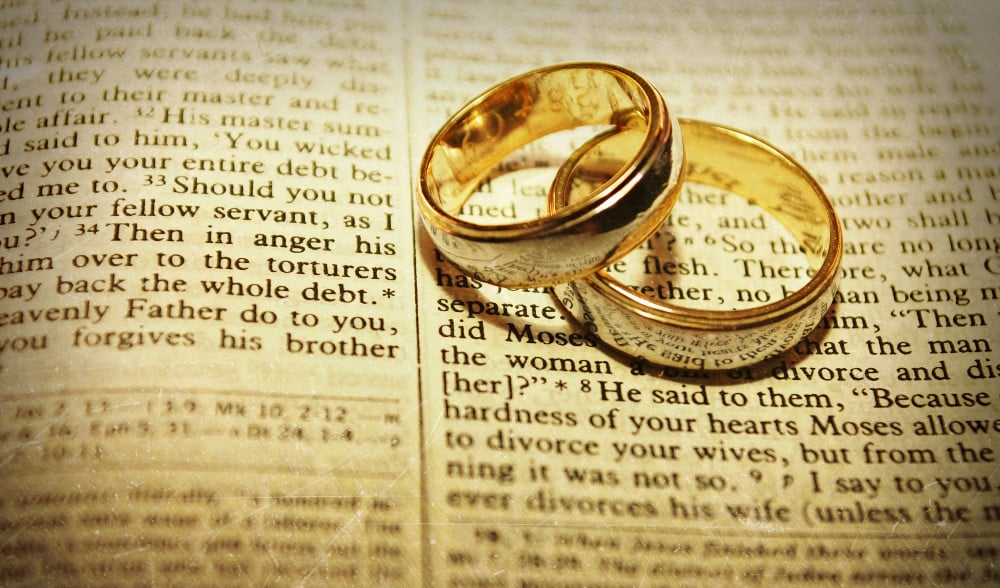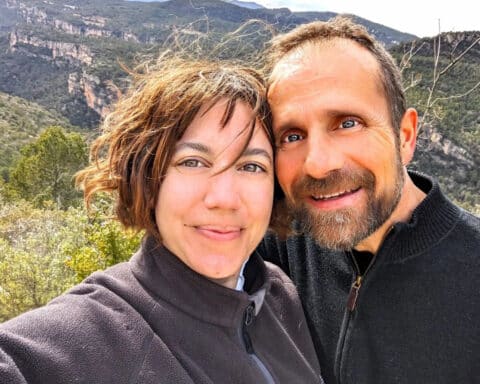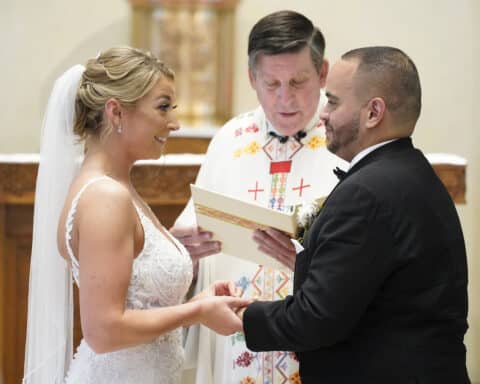
— Ellen Hannan, New Jersey
Answer: The Sacrament of Holy Matrimony has its origin in God, who instituted it at the dawn of the human race. In the second chapter of Genesis, we read that God made Adam and placed him in the Garden of Eden. And though the Garden was beautiful, God declared it was not good for the man to be alone. A suitable helpmate needed to be made for him. Hence, the Lord formed Eve out of the rib from Adam’s side. At this moment God then teaches: “That is why a man leaves his father and mother and clings to his wife, and the two of them become one body” (Gn 2:24).
Although, at this point, the term “sacrament” is not used, marriage is clearly seen as a work of God himself who sets it forth with a structure: one man for one woman who cling to each other until death do they part. This structure makes sense because God also says to the first couple: “Be fertile and multiply; fill the earth and subdue it” (Gn 1:28). Therefore, holy matrimony takes its structure from what is necessary and best for children. A man and a woman are necessary so that children can be conceived. Further, it is best for children to have a father and a mother in a stable and lasting relationship so they can learn trust, loyalty, patience and forgiveness. To have a father and a mother (not two fathers, two mothers, or other recently proposed alternatives) is necessary for children so they can learn the masculine and feminine genius of being human. To intentionally subject children to something different and less than God’s plan is an injustice to them.
In terms of marriage being called a sacrament, we can see two moments in the New Testament where this takes place. In the Gospels, Jesus is questioned about divorce, and he forbids it. He then teaches the following about marriage: “Have you not read that from the beginning the Creator ‘made them male and female’ and said, ‘For this reason a man shall leave his father and mother and be joined to his wife, and the two shall become one flesh’? So they are no longer two, but one flesh. Therefore, what God has joined together, no human being must separate” (Mt 19:4-6). Thus, in commenting on Genesis, Jesus declares that lawful marriage is an act of God, both as an institution and individually in every lawful marriage. It is God’s work that we must respect. And thus, Jesus elevates it from the natural order to a work of God. Some argue that this is the formal institution of marriage as a sacrament.
St. Paul, also echoing Genesis, teaches: “For this reason a man shall leave [his] father and [his] mother and be joined to his wife, and the two shall become one flesh.’ This is a great mystery, but I speak in reference to Christ and the church” (Eph 5:31-32). The term “mystery” translates the Greek word mysterion, which was also translated into the Latin Vulgate Bible by St. Jerome as sacramentum. So, mysterion and sacramentum mean the same thing. And here we see the term “sacrament” being applied to holy matrimony by St. Paul most clearly in the Scriptures.
As for the wedding feast of Cana, there is a pious tradition that Jesus elevated marriage to a sacrament by choosing to work his first miracle at the wedding. But, as can be seen from other texts just quoted, there are other passages that must be considered as well. St. Paul links the Sacrament of Matrimony to an image of Christ’s marriage to his Church, and Cana certainly does the same, though more allegorically.
Catholic burial
Question: Must I be buried in a Catholic cemetery? Does a veterans cemetery count?
— Jim Jeson, Milwaukee
Answer: No, you do not have to be buried in a Catholic cemetery. However, certain benefits accrue to those who are. The ground is consecrated by the bishop. Further, there are numerous prayers and pious actions that occur regularly in Catholic cemeteries, such as special Masses and services on All Souls Day, Good Friday, Memorial Day, Veterans Day and Mother’s Day. If one is buried in a veterans’ cemetery, or other Protestant or secular place, the grave should be blessed by a Catholic priest or deacon.
Msgr. Charles Pope is the pastor of Holy Comforter-St. Cyprian in Washington, D.C., and writes for the Archdiocese of Washington, D.C. at blog.adw.org. Send questions to msgrpope@osv.com.





